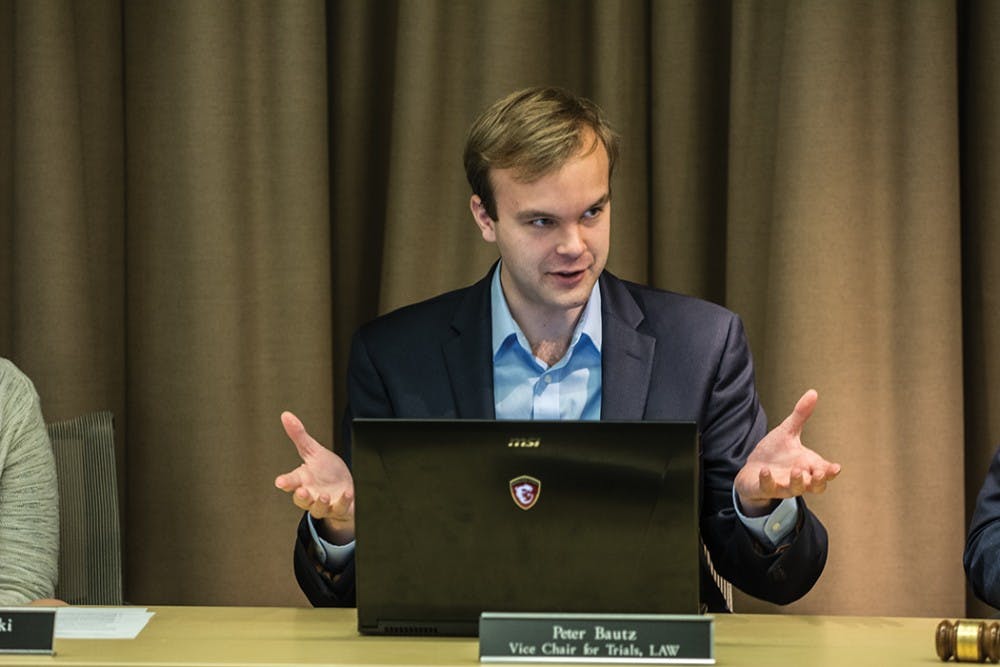The University Judiciary Committee may have several constitutional amendments on the ballot in the next University election.
Many of the changes are small, such as changing “chairman” to “chair,” and making the language gender-neutral, fourth-year College student and UJC Chair Mitch Wellman said. However, there are two larger changes students will be voting on.
The first change is adding additional categories to the sanction enhancement clause, which currently allows UJC to increase the sanctions in any case allegedly motivated by bias, Wellman said.
For example, if UJC would normally issue 50 community service hours, the committee may elevate that sentence to 100 community service hours if the violation was found to be bias-motivated, Wellman said.
UJC is making the changes to their constitution in order to match the protected categories in the University’s Discriminatory Harassment Policy. The proposed change will add the violations of UJC standards motivated by gender identity, marital status and family medical or genetic information to a list of identity categories subject to the sanction enhancement clause.
Categories already included under the sanction enhancement clause include age, color, disability, national or ethnic origin and veteran status.
While judges do not receive special training in determining if a violation is bias-motivated, Wellman said UJC judges already receive training on making decisions based on subjective wording in the standards of conduct.
“For example, our standard nine says that students can’t substantially damage property. Often it comes into question of what’s substantial and what’s not substantial,” Wellman said. “So when they go through judge training, we do train them on generally determining outcomes that have ambiguous terminology.”
Wellman said he personally hopes people will see this amendment as more relevant in light of recent bias-motivated events on Grounds.
The second larger change to the constitution is in relation to the process of filling a representative vacancy. Currently, the process is differs between the by-laws and the constitution, and Wellman said the constitution is being made to match the by-laws.
“We allow the president of each school to sort of disseminate the information about the vacancy and then we allow the president to put a name forward from that school, and then we vet that candidate,” Wellman said.
The current constitution wording places the responsibility of finding a candidate on the members of UJC.
“What happened over the years is that we found that second mechanism was much more feasible, the president probably knew more about that person than we did, or was probably better able to communicate to their student body better than we were able to,” Wellman said.
The referendums are not guaranteed to be on the ballot this spring. The amendments were approved by two-thirds of the committee in its meeting Nov. 13. A petition supporting the referendums may be needed, but that will be determined by the University Board of Elections.
Correction: The headline for this article previously said UJC may institute harsher punishments for bias-motivated violations. The UJC already does this, but may widen its definition of bias-motivated violations to include additional categories.







